The three of us were on the trip of a lifetime, one we had spent months planning. We aimed to spend two and a half weeks biking and skiing iconic volcanos in the Pacific Northwest, fully self- supported. The plan was to ride 650 miles, linking together seven summits with only human power and lots of snacks.
It was not a normal plan. However, the trip was not happening under normal circumstances—in the midst of a global pandemic and social justice uprising. With intermittent connectivity to the outside world, we lived in a purgatory between something we love to do, and a movement that we wanted to be a part of. By day, we’d lose ourselves in the mountains, managing weather, food, and the ever-present risk of avalanches. At night, we’d turn on our phones, call our parents and friends, and immediately feel lost—more so than we felt in the woods. Recognizing our trip was a selfish and privileged endeavor, we wrestled with the purpose of adventuring almost daily.
In a search for answers, we found one obvious truth: The mountains make us feel alive, maybe more than anywhere else. That simplification of our daily struggles made each climb into a way to reflect and grow, better than any other teacher I know. Charlie, Wyatt, and I grew up scrambling, skiing, and running ridges. This was our way to test our grit and endurance—our way to find perspective. Here’s a look at our journey, from Mount Lassen, in Northern California, to Mount Hood, in Oregon.
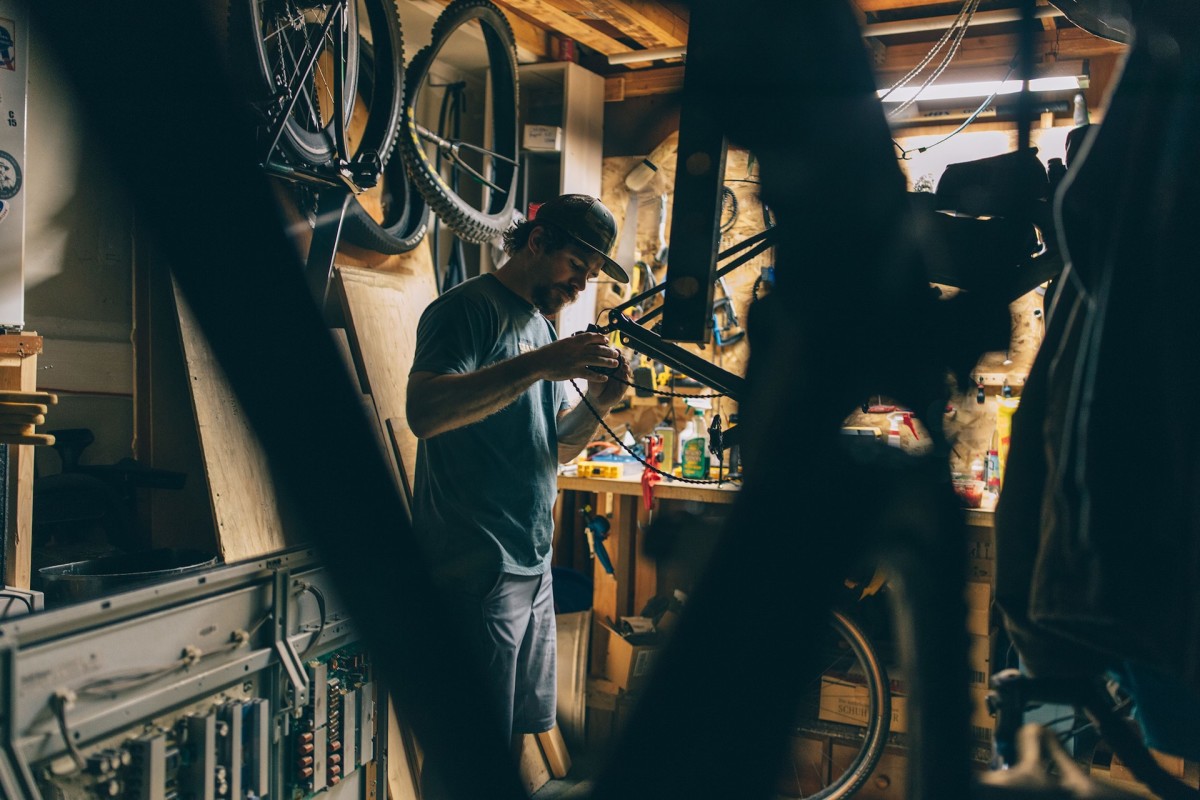
The three of us rendezvoused in Jackson, Wyoming, where Wyatt and Charlie grew up. The last few days before the trip were a blur, riding bikes, packing food, testing gear, and checking weather. The last night before we headed west was spent tinkering in the garage and toasting our naivety of the coming days.
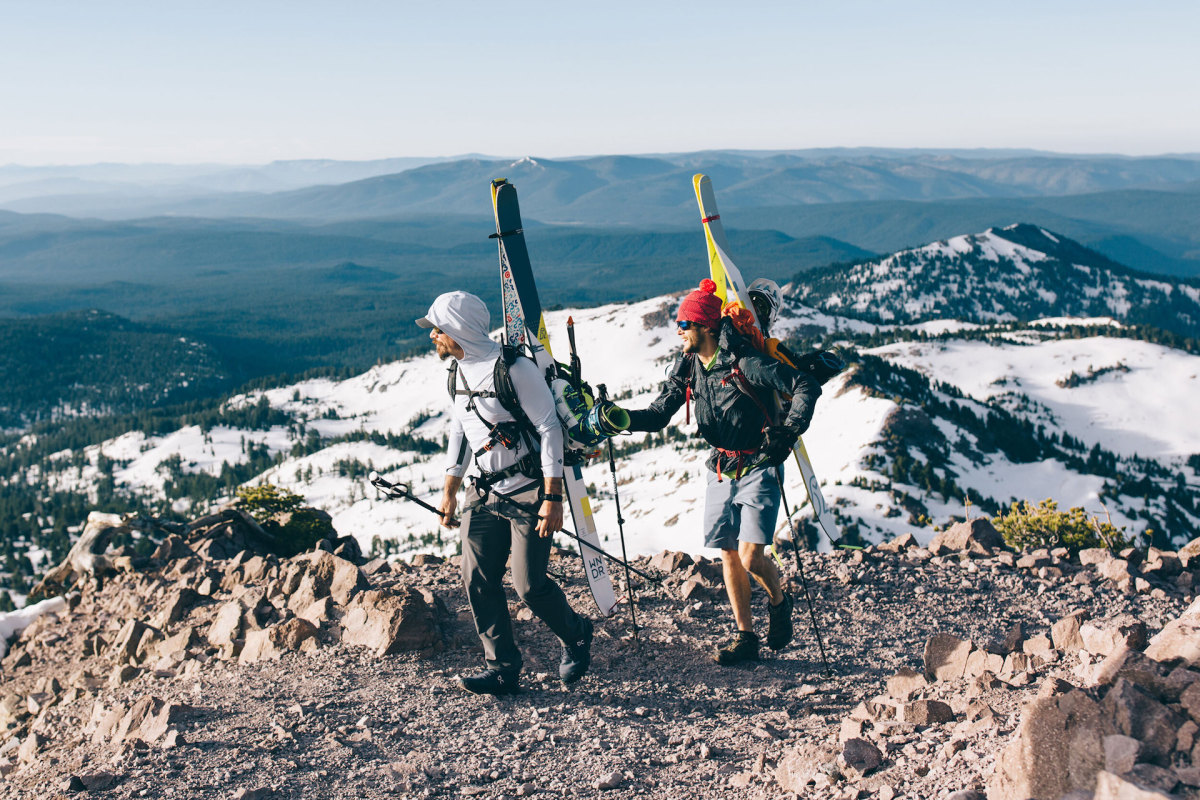
We scaled to the top of Lassen, a lesser known volcano in northern California, in a little over an hour. As our warm-up before Shasta, the highest peak of the trip, this was a great way to figure out gear systems before a big push. With sunny weather and long days in early June, we spent the rest of the day spinning our wheels north.
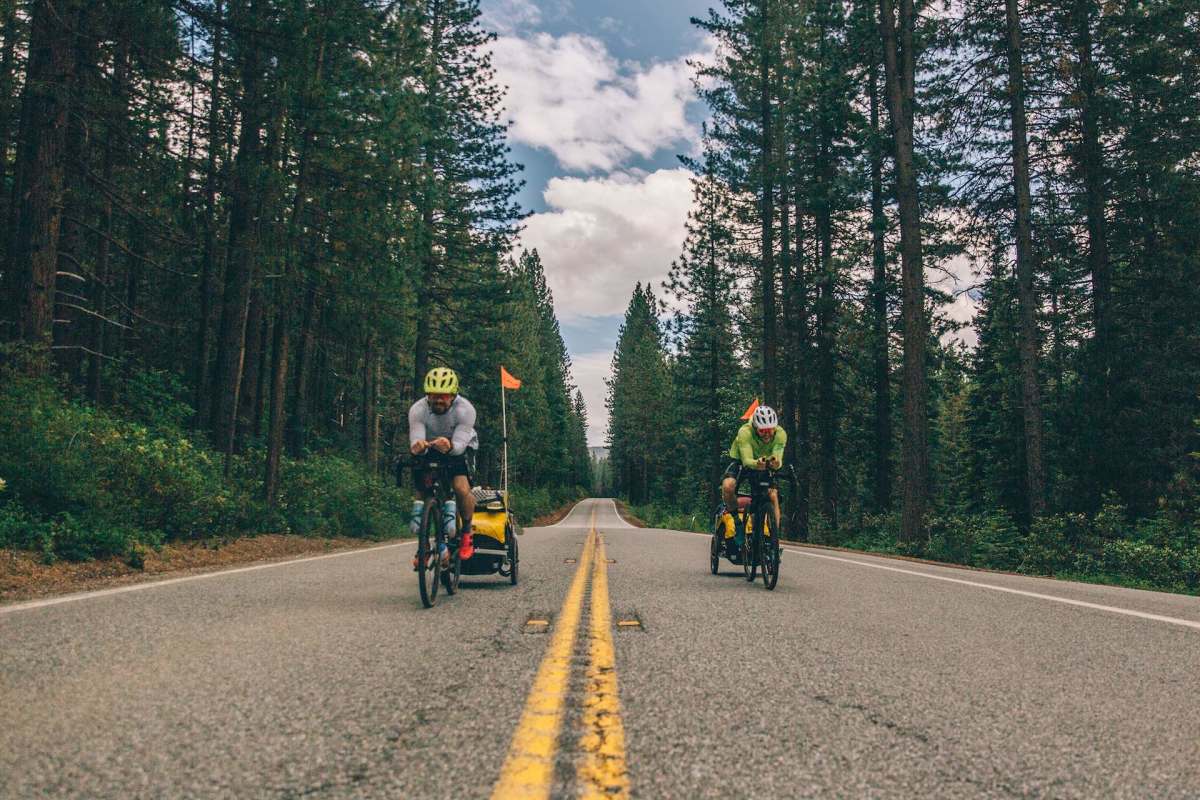
And it didn’t take long to figure out what we were in for. The first hill with more than a couple hundred feet of vert stopped us dead in our tracks. Each trailer weighed around 140 pounds, making climbs feel slow and arduous, even with fresh legs. We fought to stay positive, pedaling empty backroads toward Shasta.
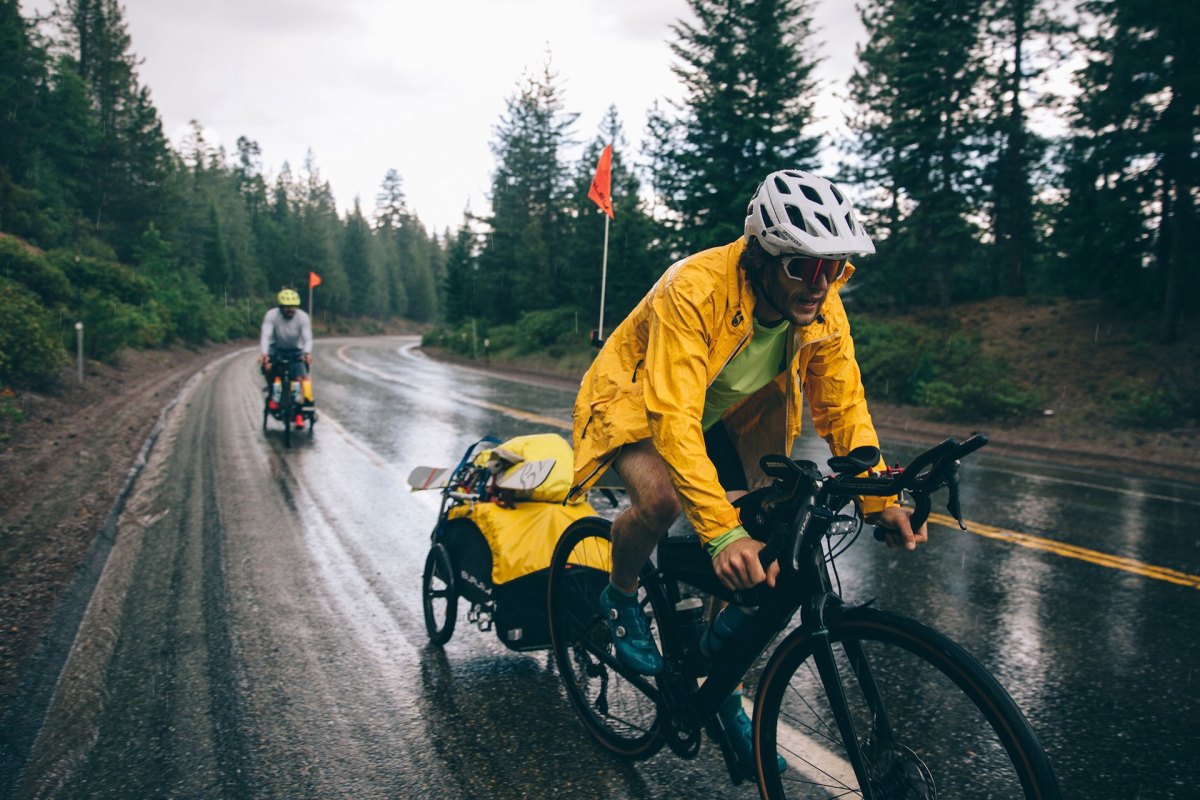

Thirty miles from the trailhead, it started to rain and as we climbed to higher elevations, the rain turned to snow. Cold and tired, we checked the weather to see that this system would sit on the mountain for the next few days. We hunkered down to wait out the storm, not wanting to climb in a whiteout.
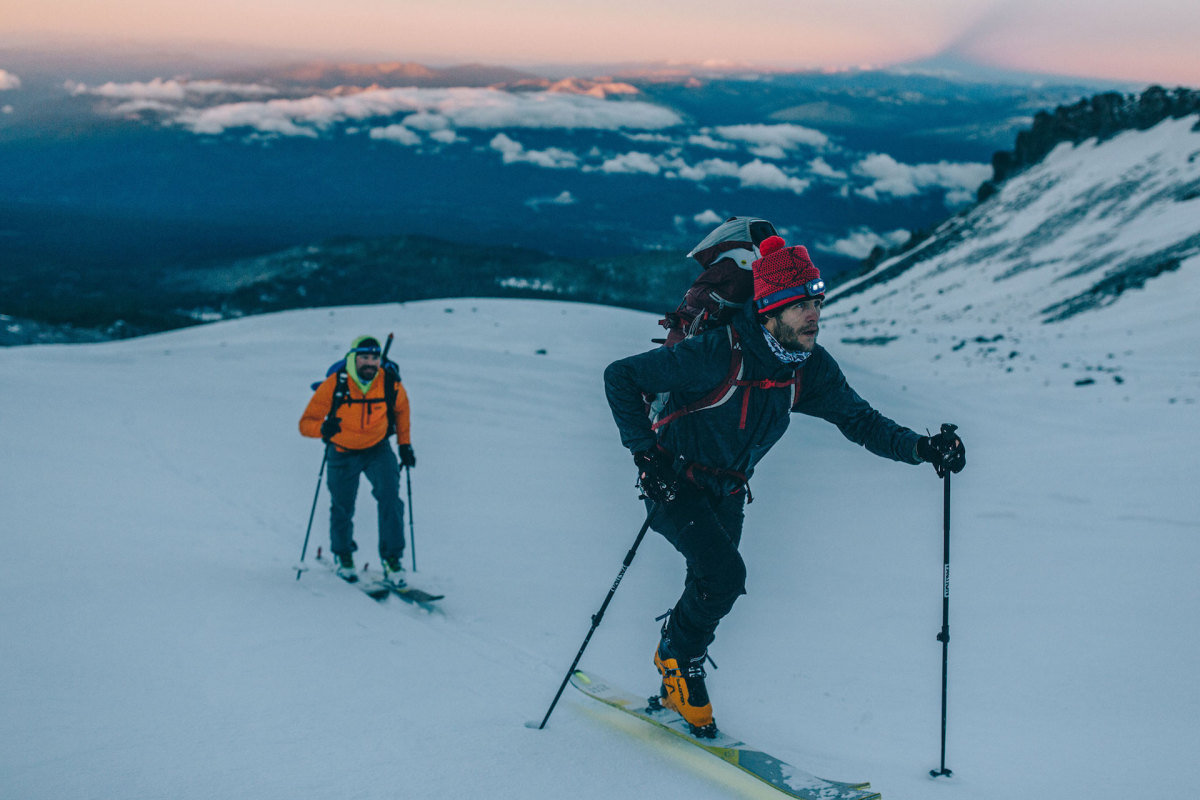
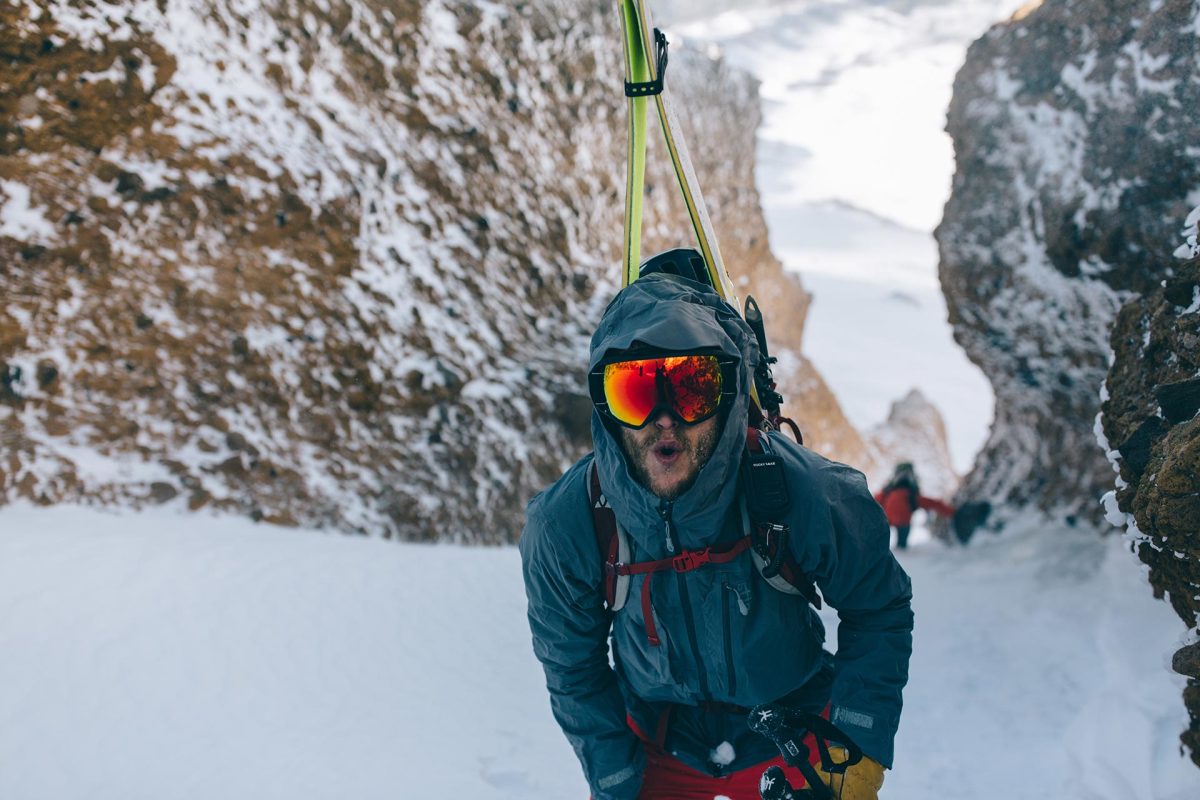
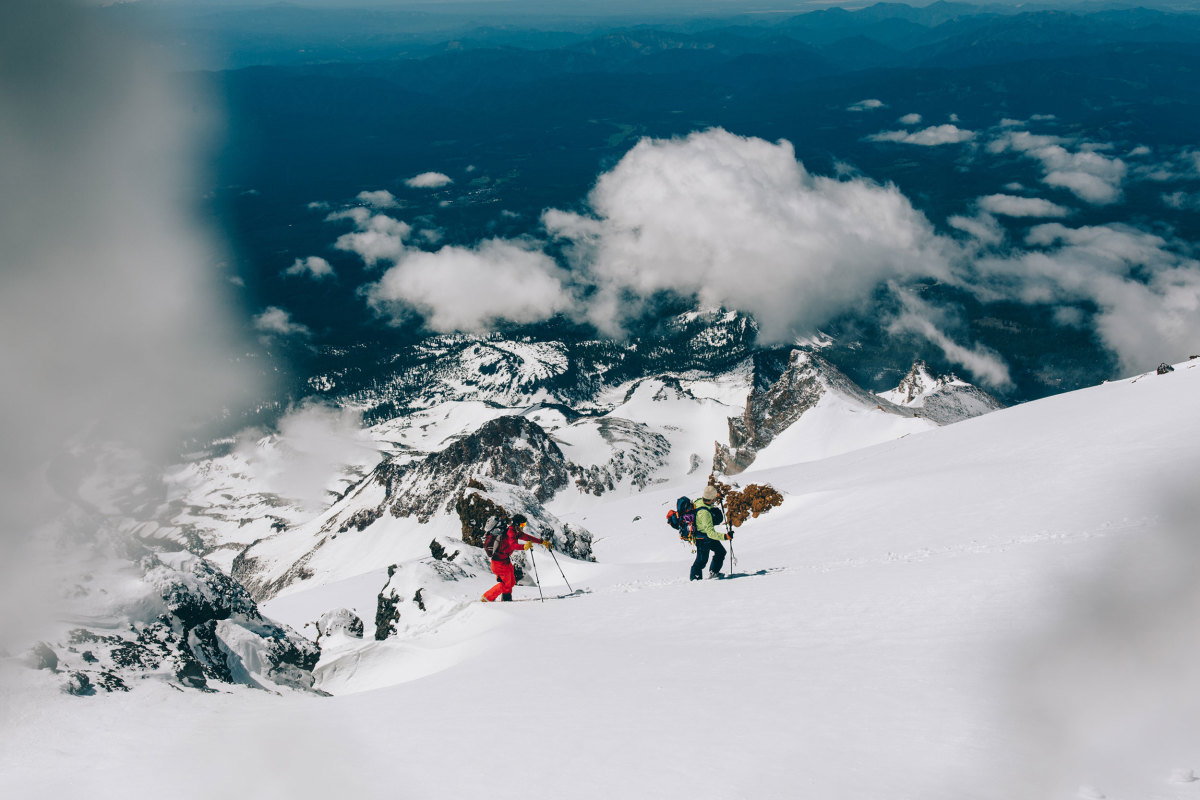
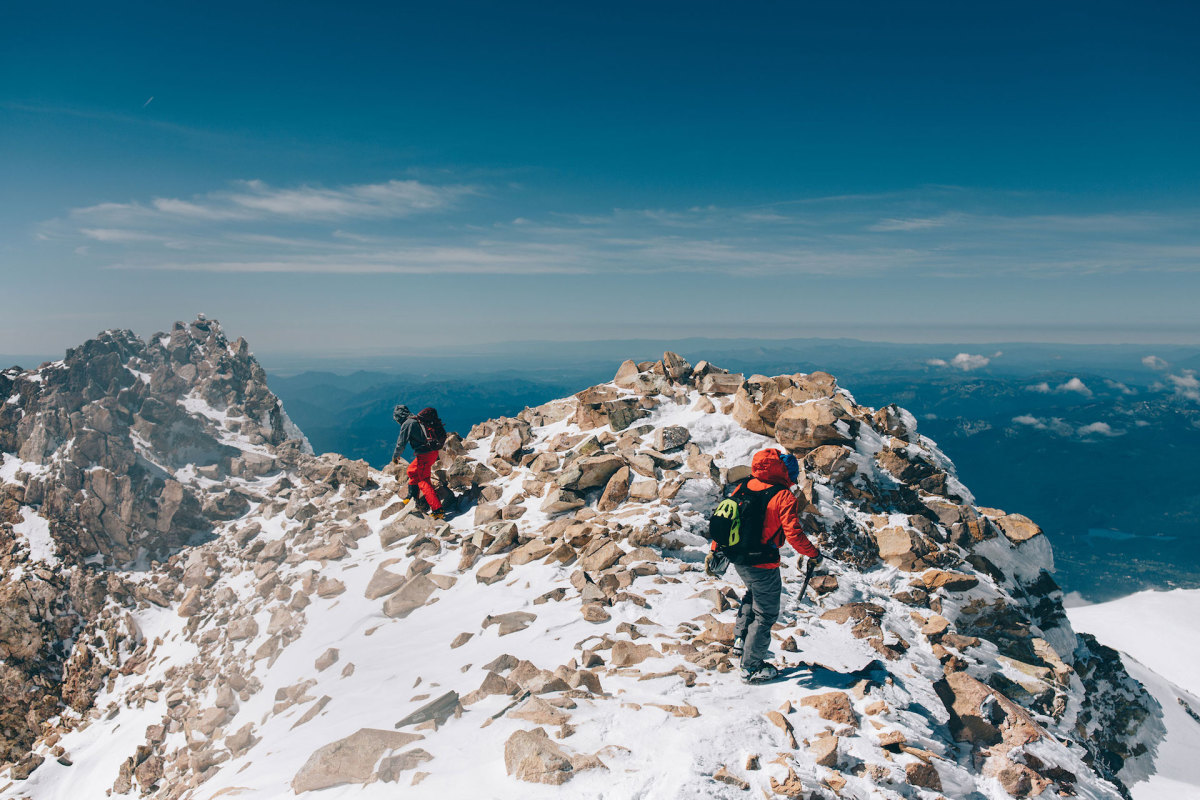
A day and a half later the weather cleared and we made a push for the summit, heading up the standard route, Avalanche Gulch. We found a small gap in the Red Banks and made steady progress up Disappointment Hill, nearly skinning our way to the summit. Surprisingly, we saw only three other climbing parties all day.
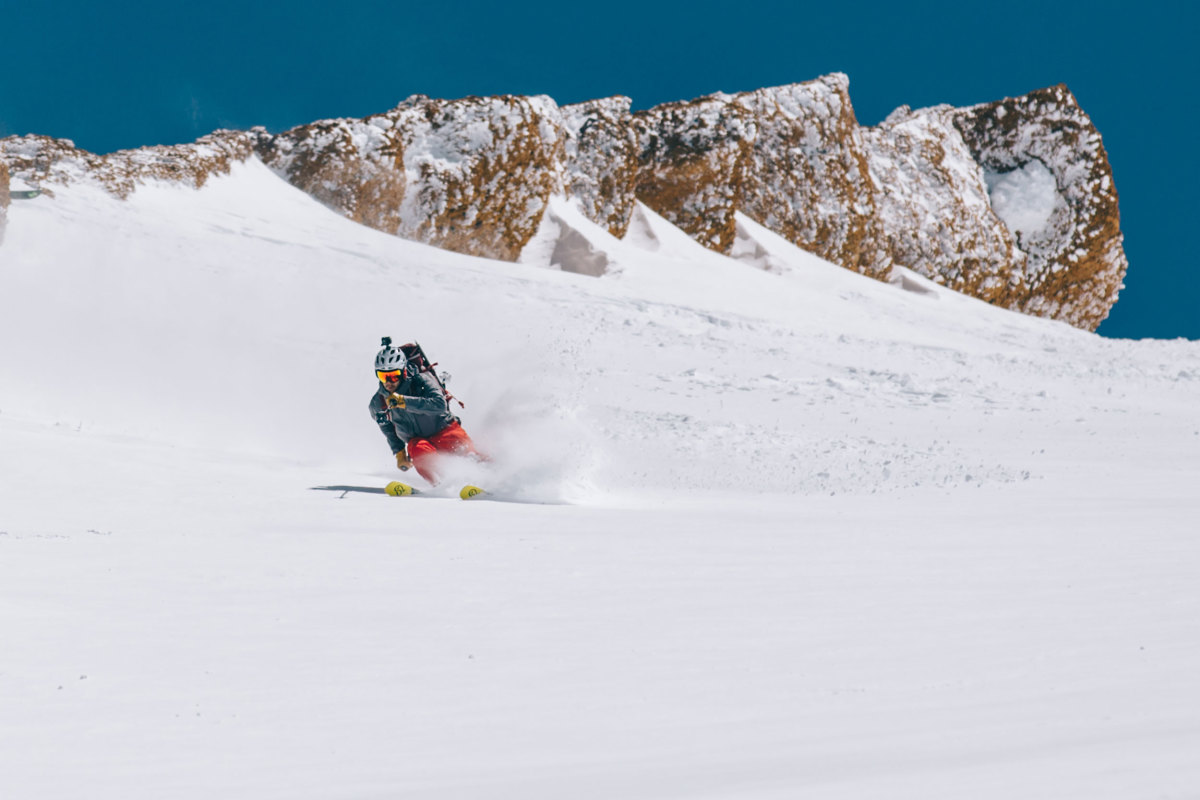
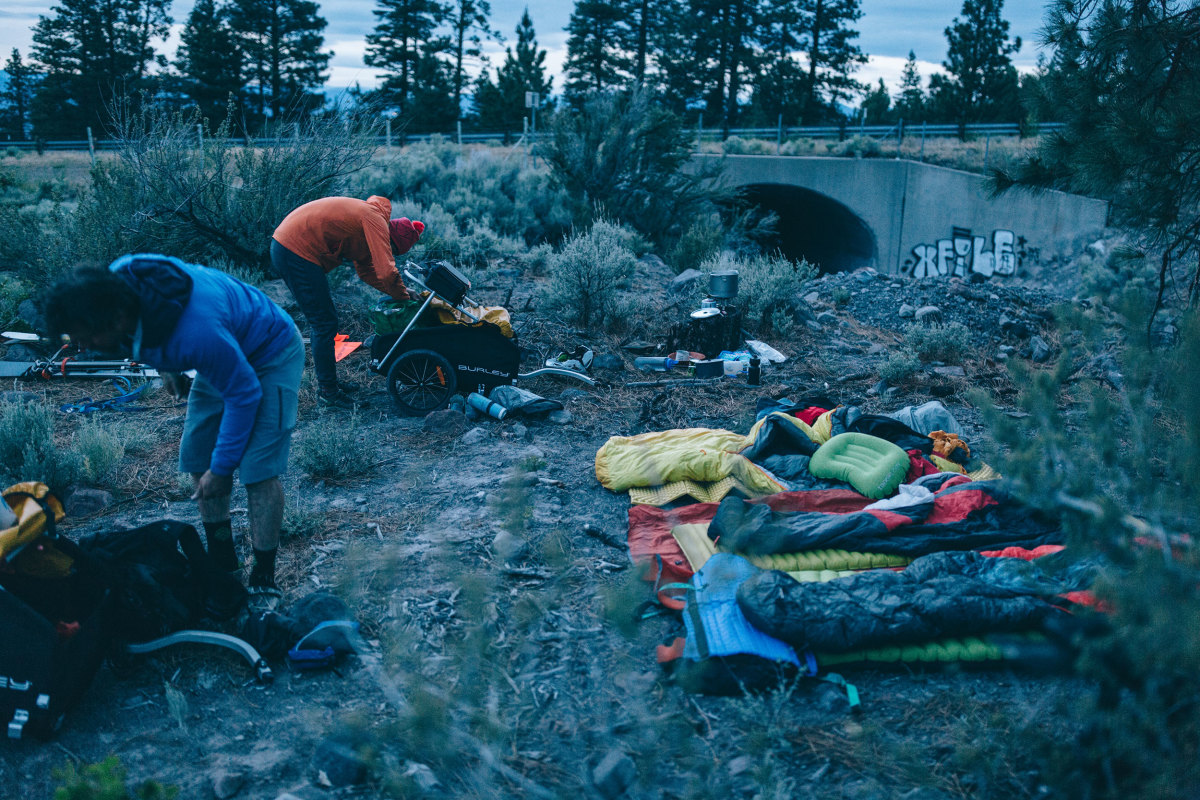
Powder day in June? You bet. The upside of the big storm was knee-deep powder on the top of the peak. Revitalized, we pedaled 30 miles that afternoon, making our way to the Oregon border. Stopping near dark, we set up a camp on the side of the highway, too tired to care about semi traffic.
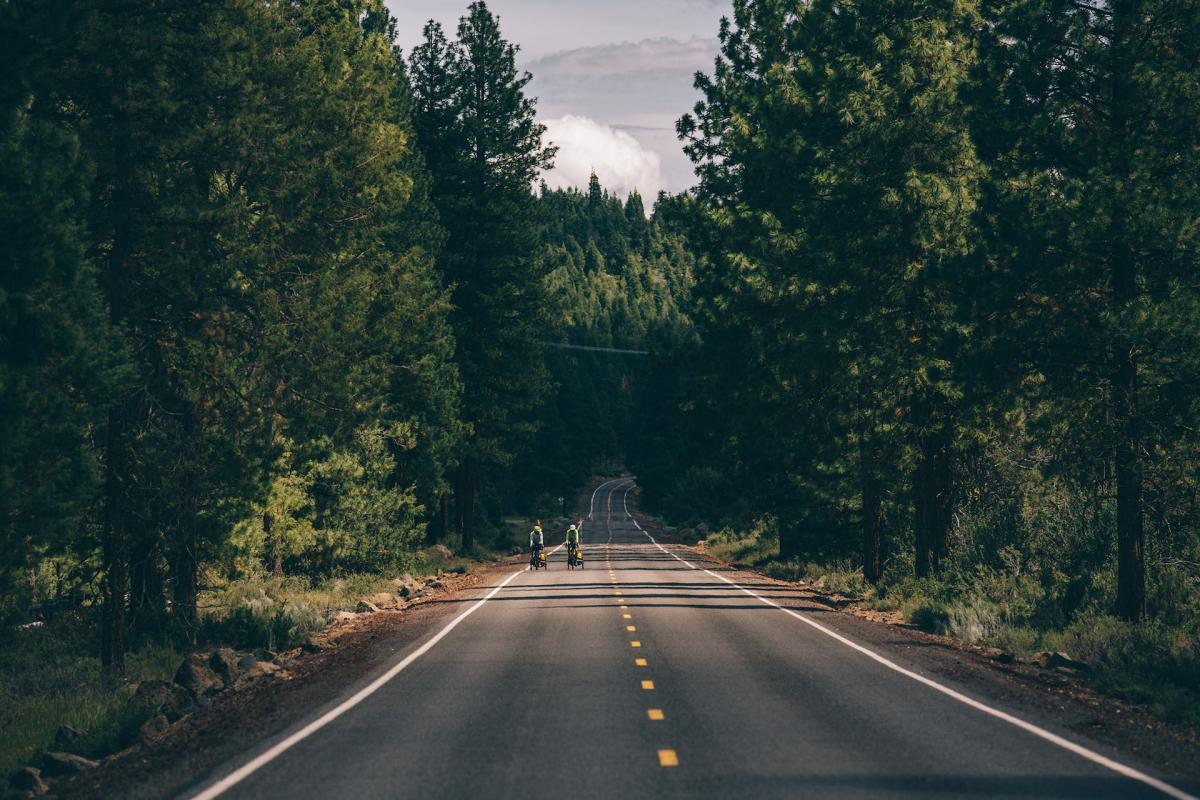
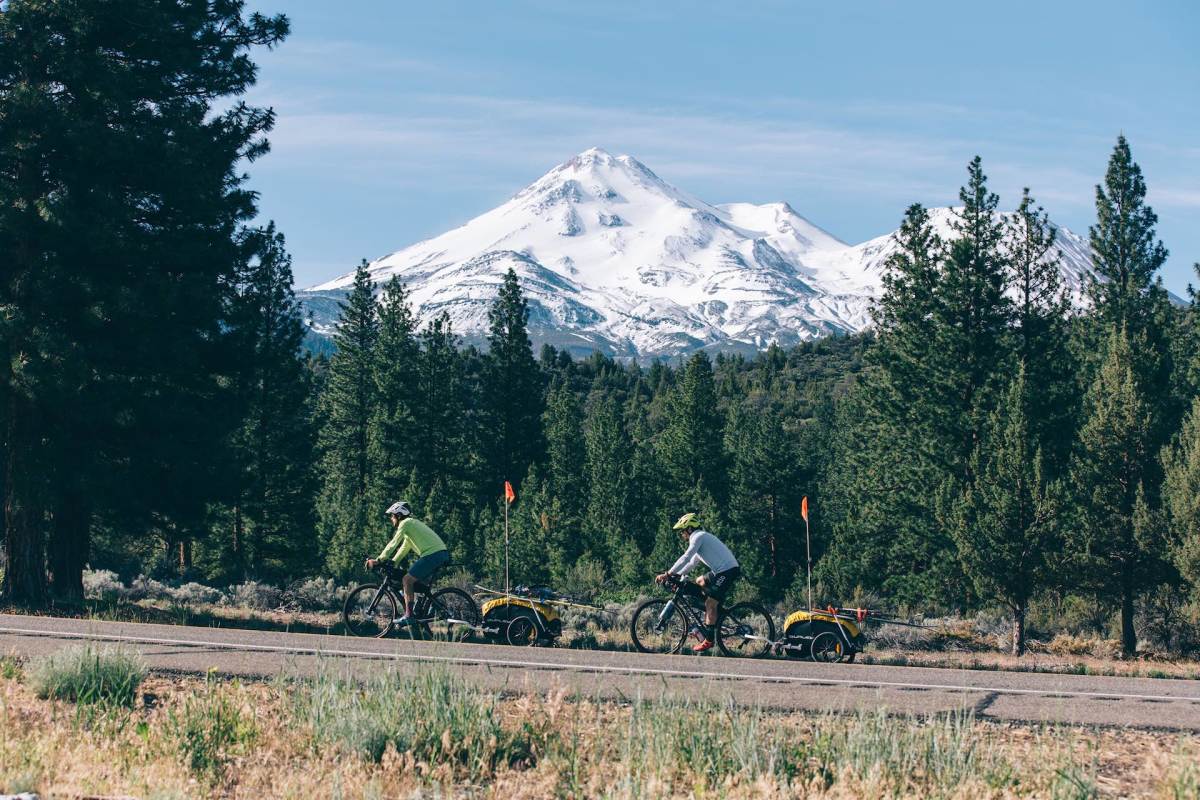
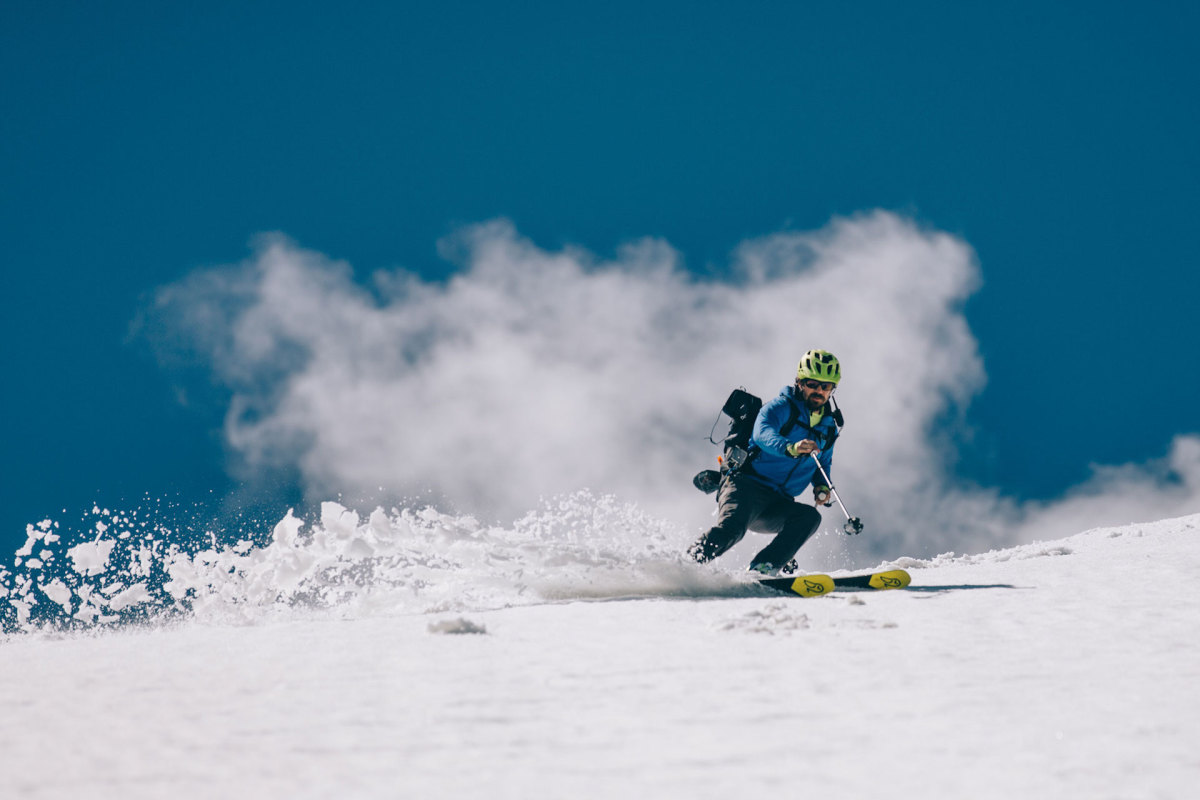
The next day we continued north, biking past Klamath Falls to the foothills of Mount McLoughlin. The next morning we rose early and hiked the long approach up to the snowline with skis strapped to our packs. After summiting, we dropped into the north bowl of the peak, hoping for good turns.
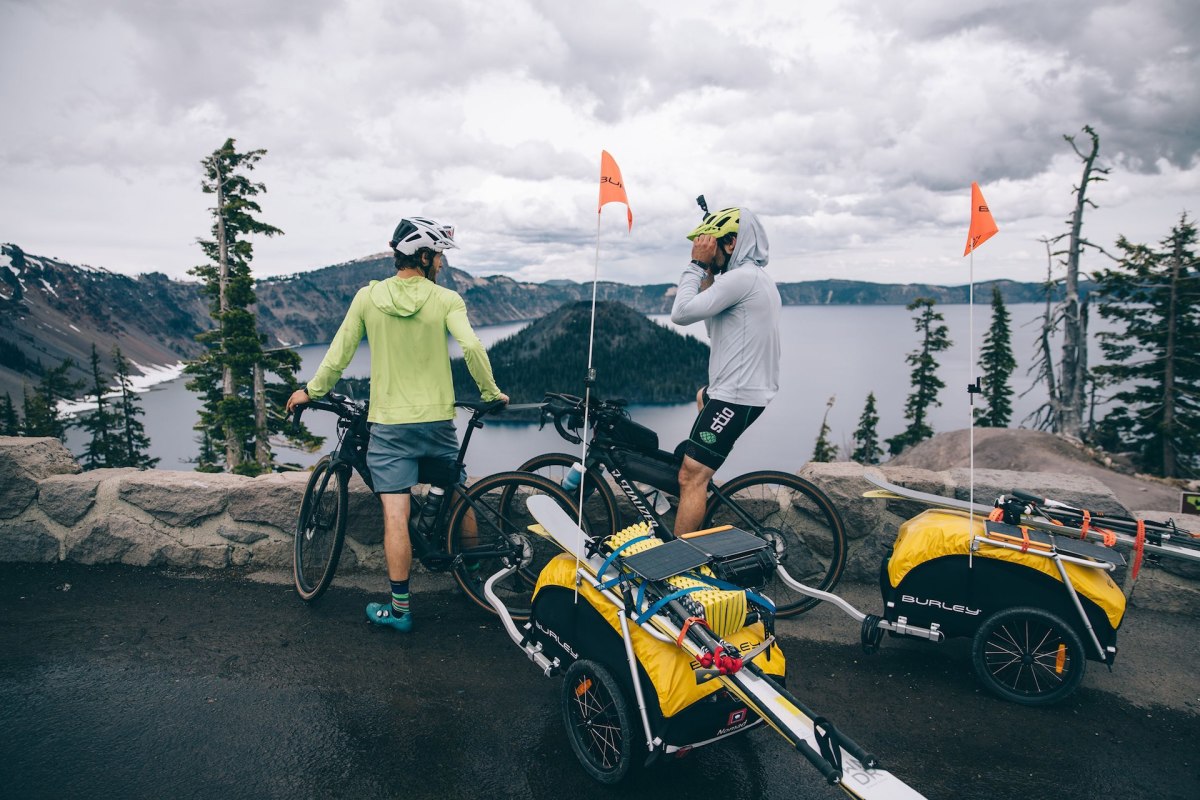
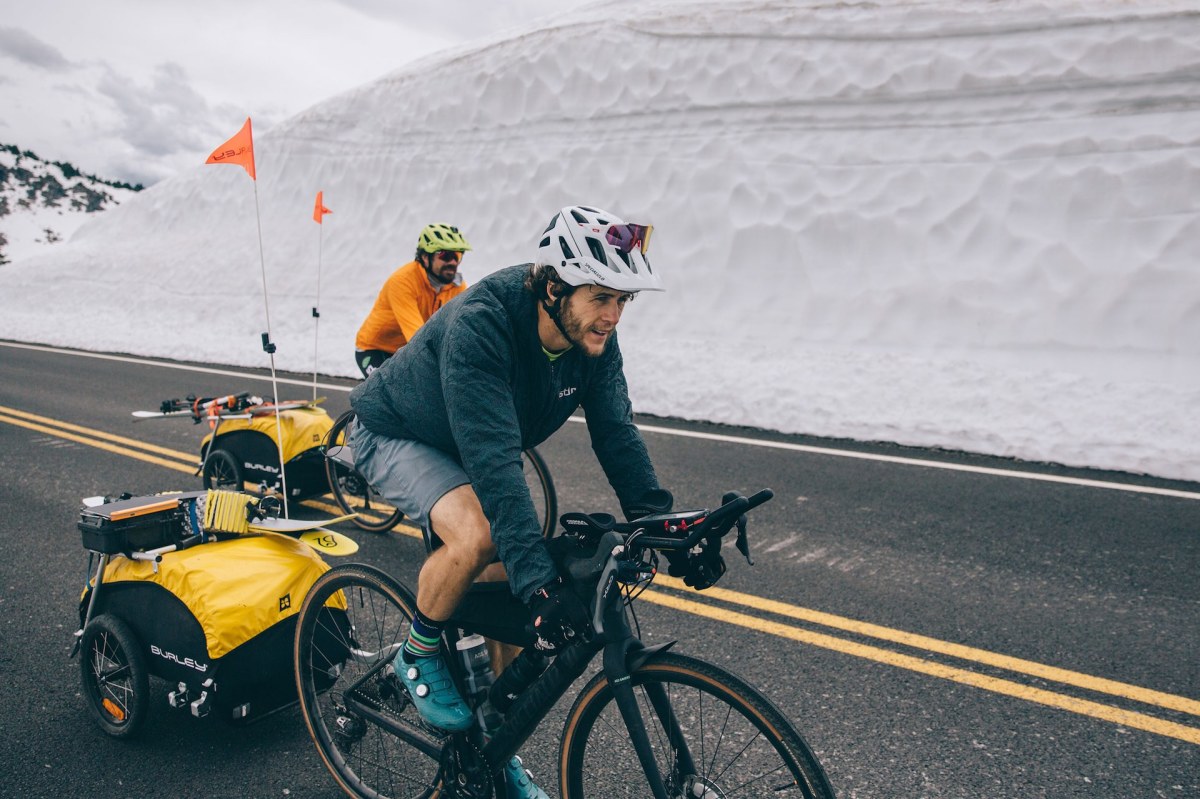
Crater Lake National Park opened the day before we arrived. And despite 4,000 feet of climbing, we opted to take the detour. Biking around the rim of the caldera was a surreal feeling and offered an easy finish the day. After a lake swim, we set up camp and prepared for another climb.
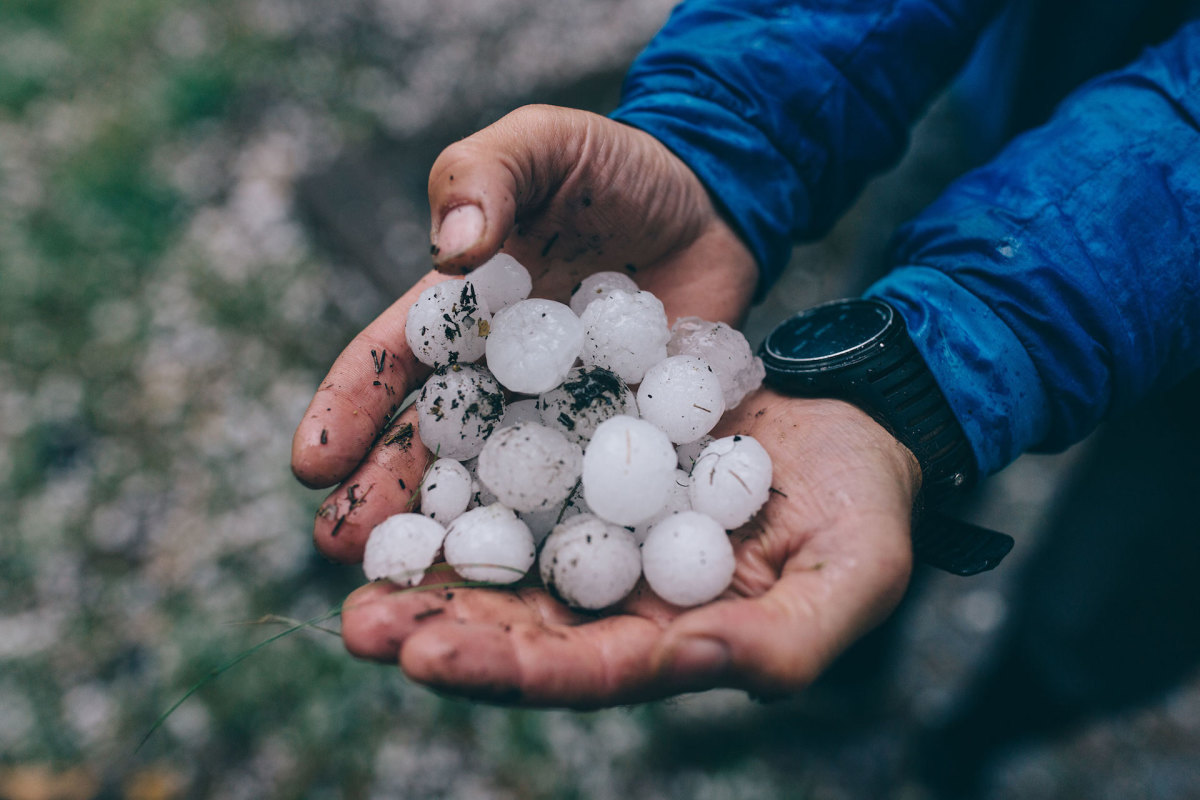
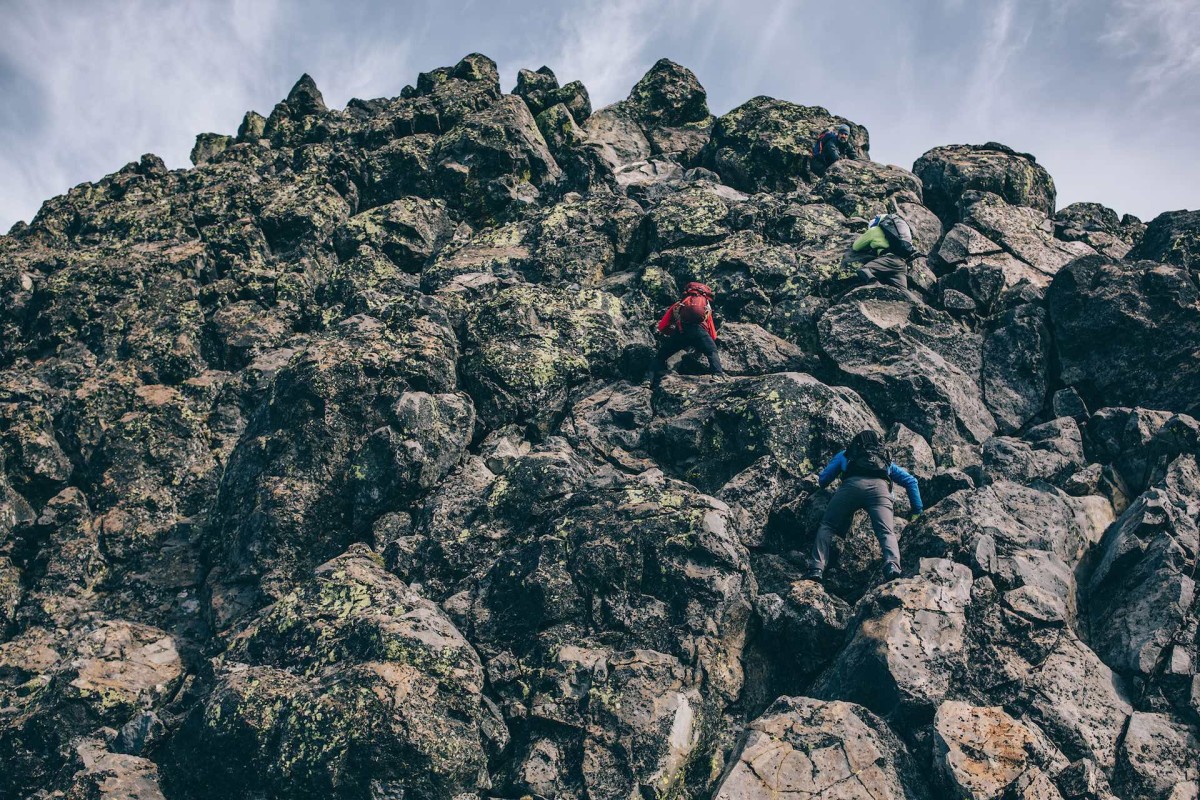
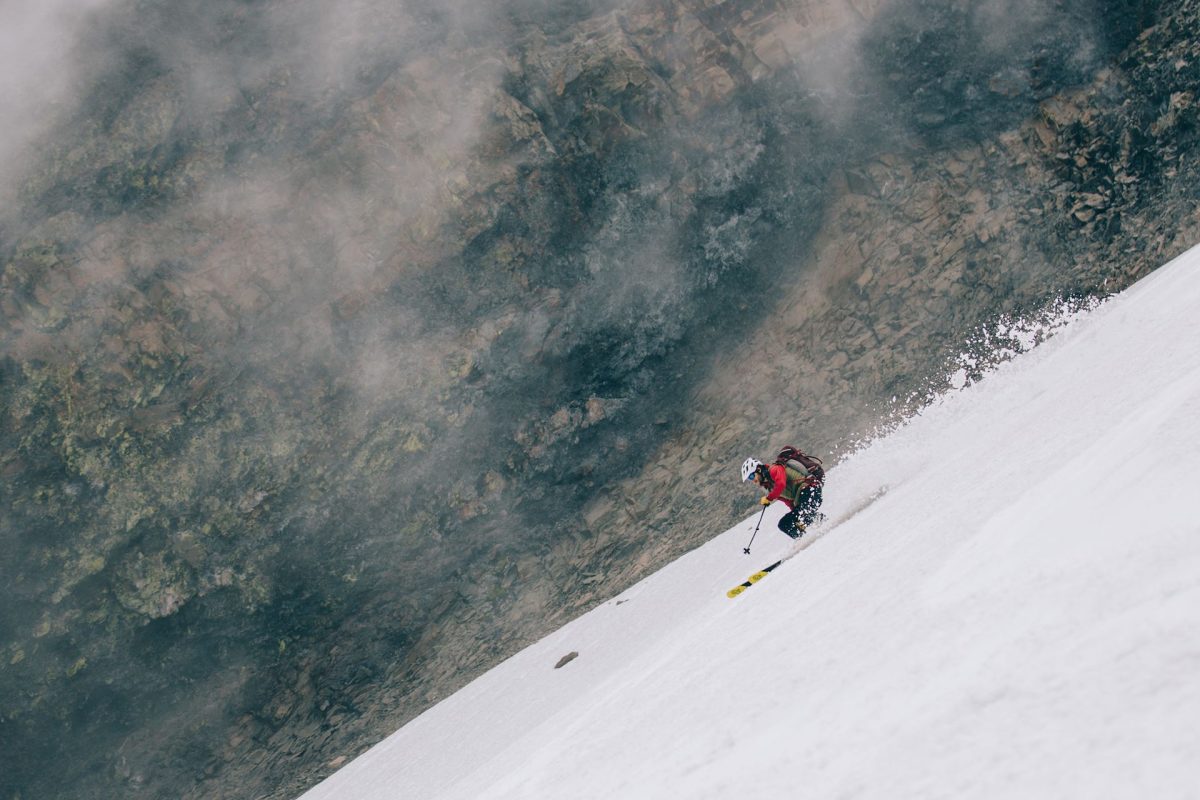
The hail started as we were crawling into the tent and quickly grew to the size of golf balls, forcing us to run for cover. The next morning we hiked up Mount Thielsen, scrambling the last 100 vertical feet without skis. To maximize our turns, we opted to ski a short run, hike around the base, and bootpack up the north face, collecting a couple thousand feet of perfect corn.
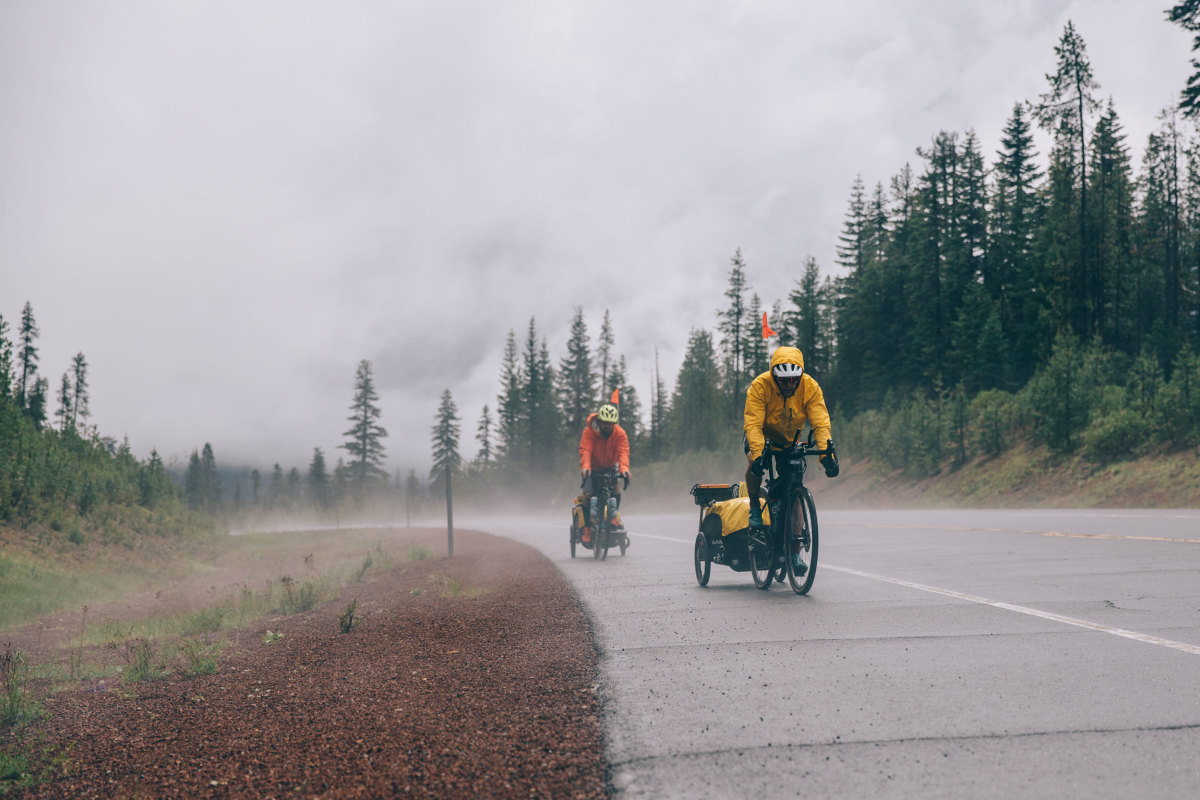
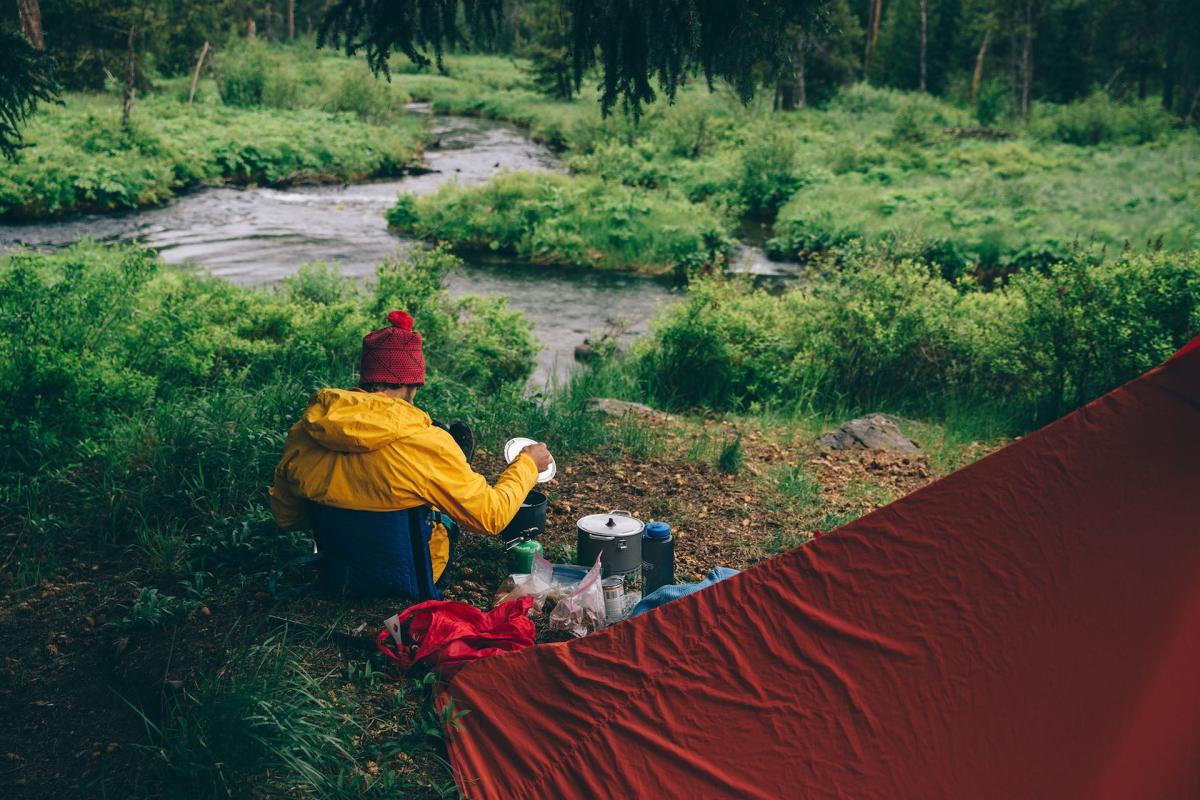
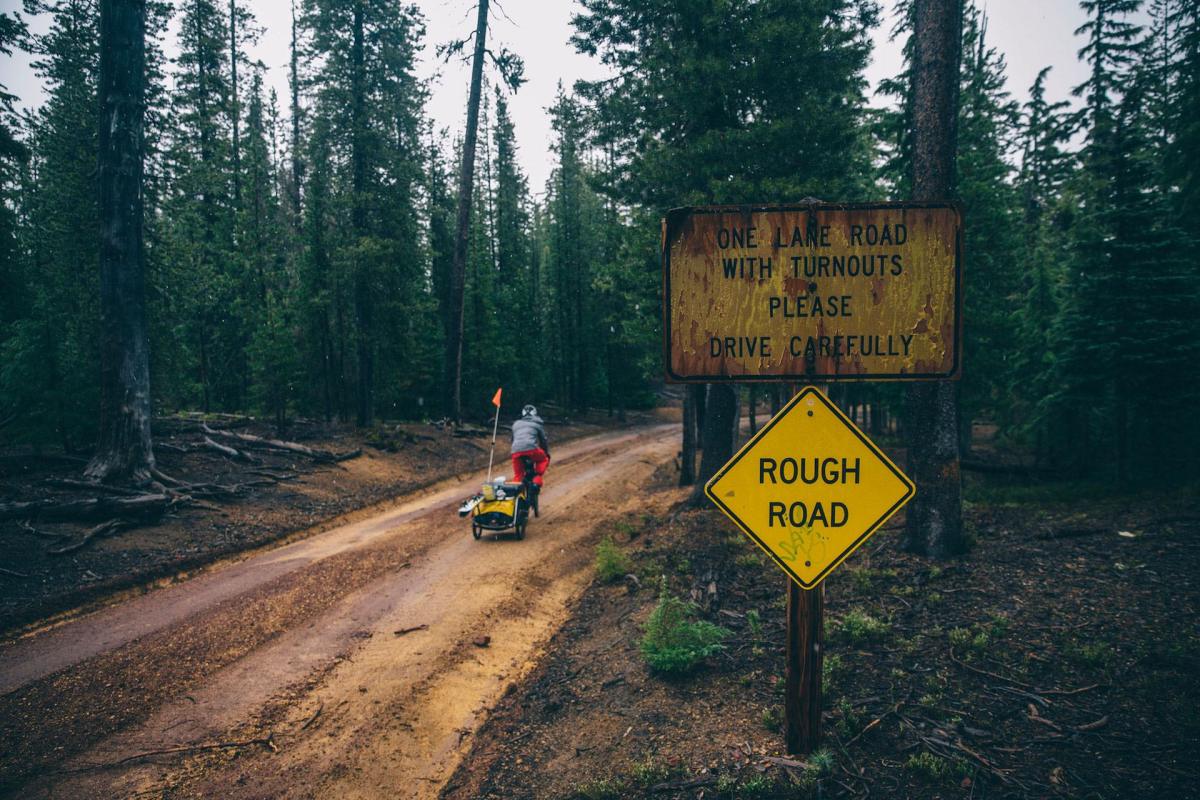
Back on the bikes that afternoon, clouds moved in. As we were learning, rain was the ongoing theme of the trip. We pedaled until stumbling into a beautiful campsite on the Umpqua River. The next morning we biked up Windigo Pass, a long and steep dirt road. At the top, it was snowing and I had lost feeling in my toes.
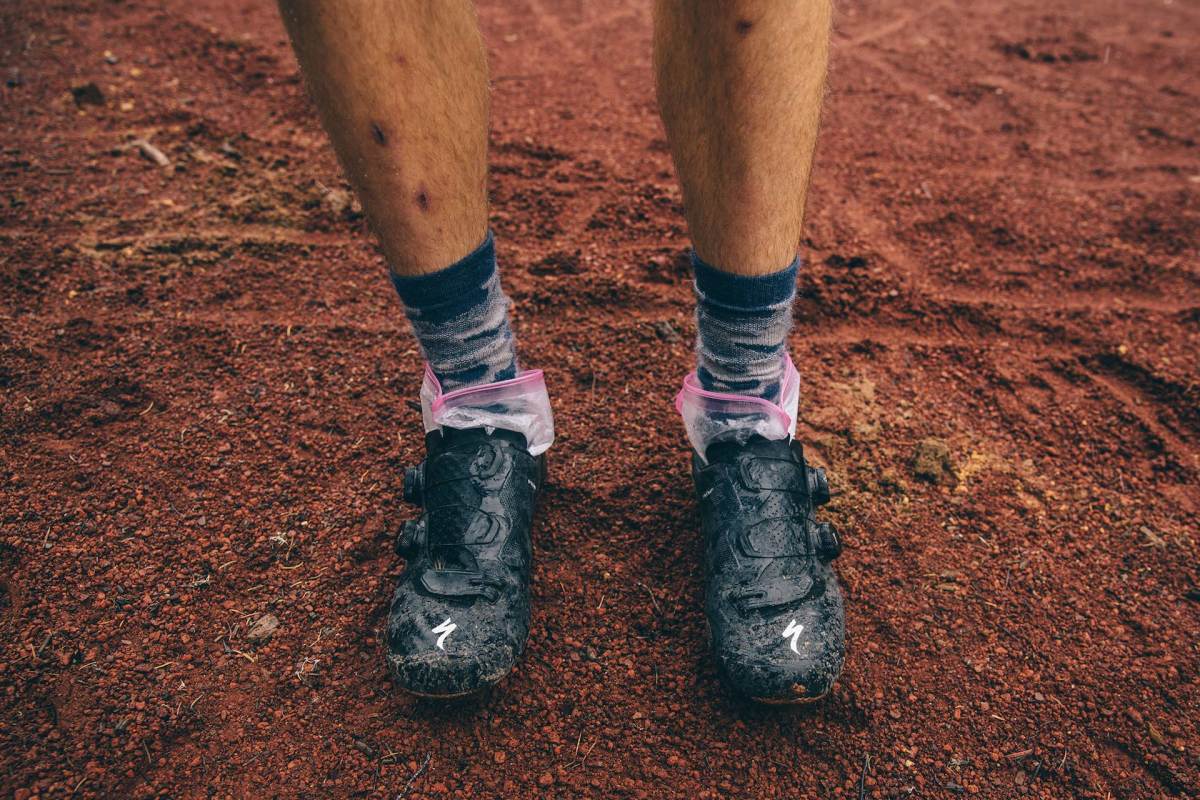
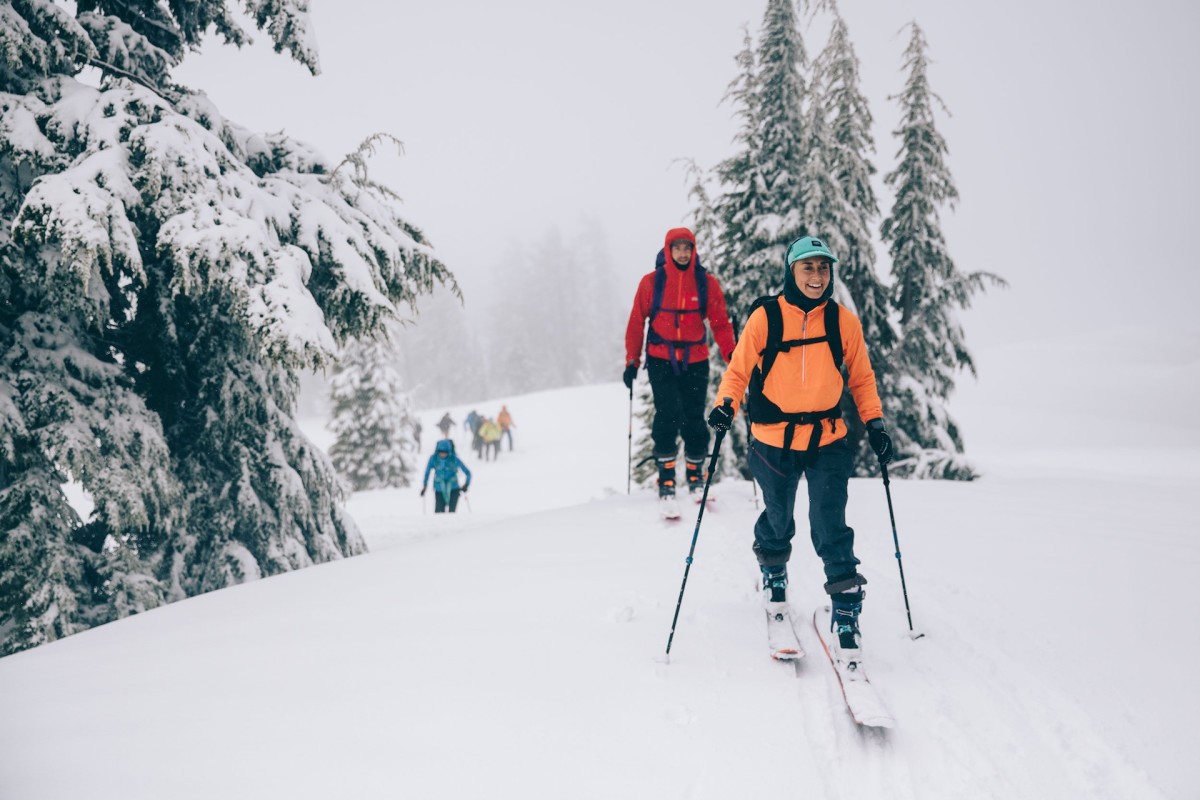
Using an old Minnesota trick, we put plastic bags in our shoes to trap moisture and heat, which soon upped morale. The following day a few friends joined us on South Sister, before whiteout conditions forced us to turn around a thousand feet below the summit. After a stop in Bend to resupply food, we continued north toward Jefferson.
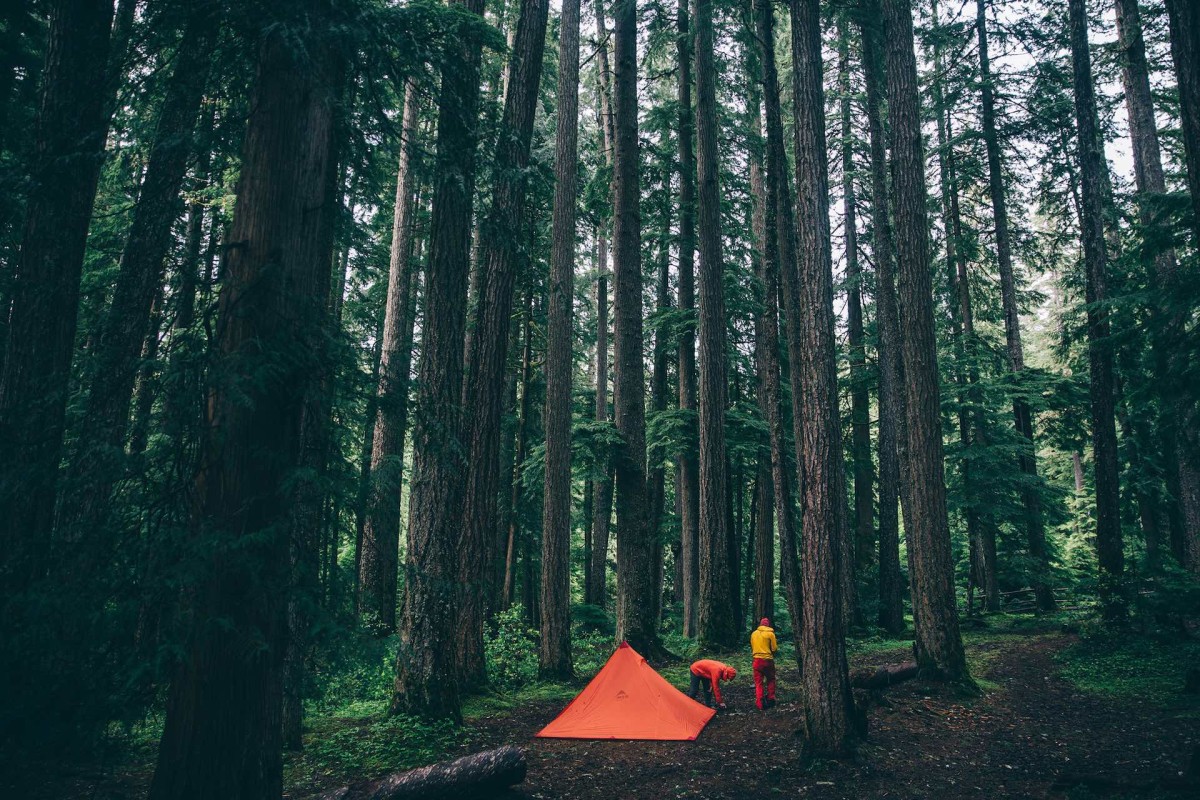
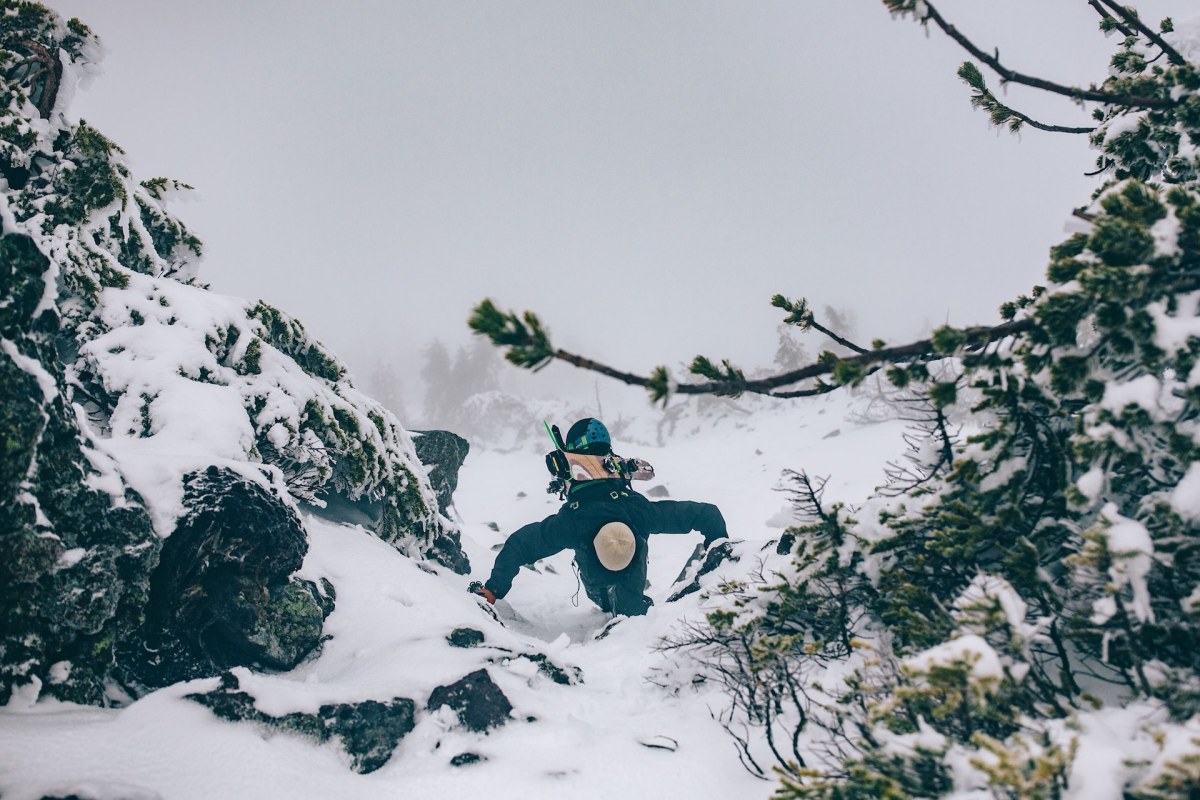
Yet another wet storm came in that evening, forcing us to wait a day before climbing Jefferson, one of the more elusive peaks in the area. The climb started off cold, bushwhacking through a mile of dense brush. Eventually we broke through the cloud inversion and skinned up to the base of the summit pinnacle, opting to stay off the icy and exposed ridge to the top.

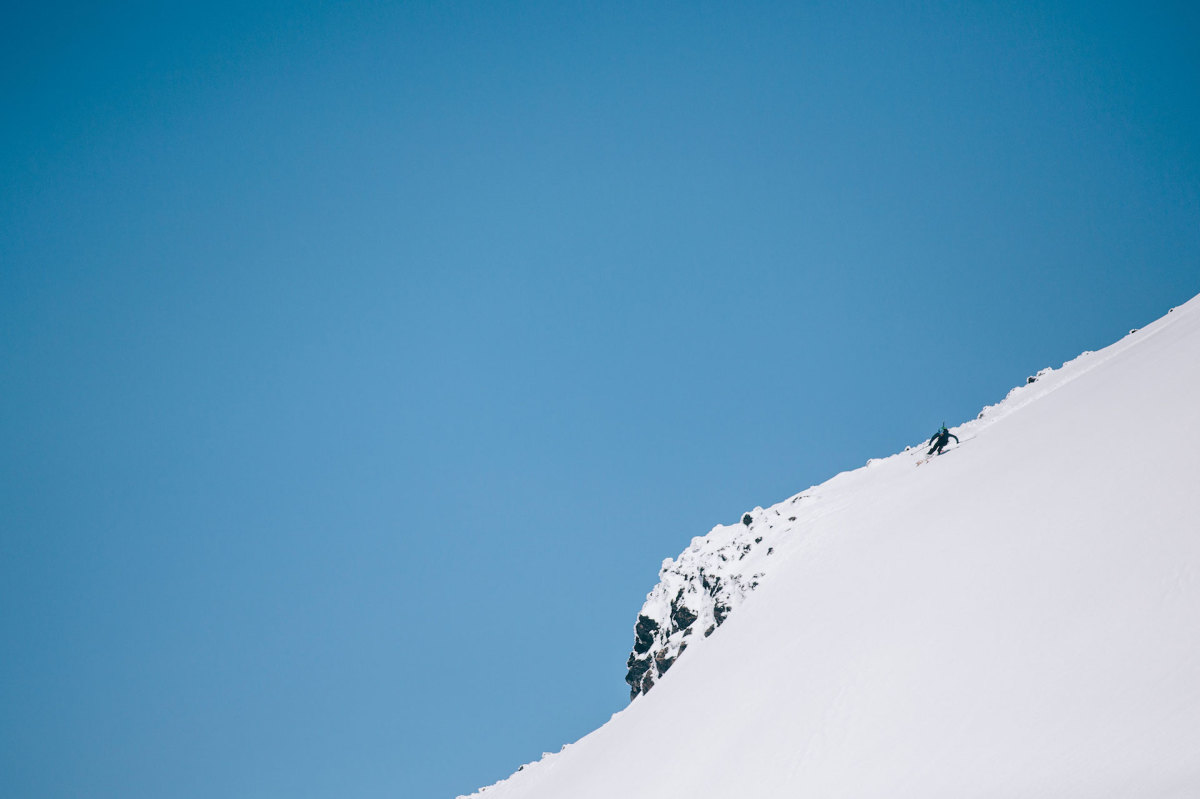
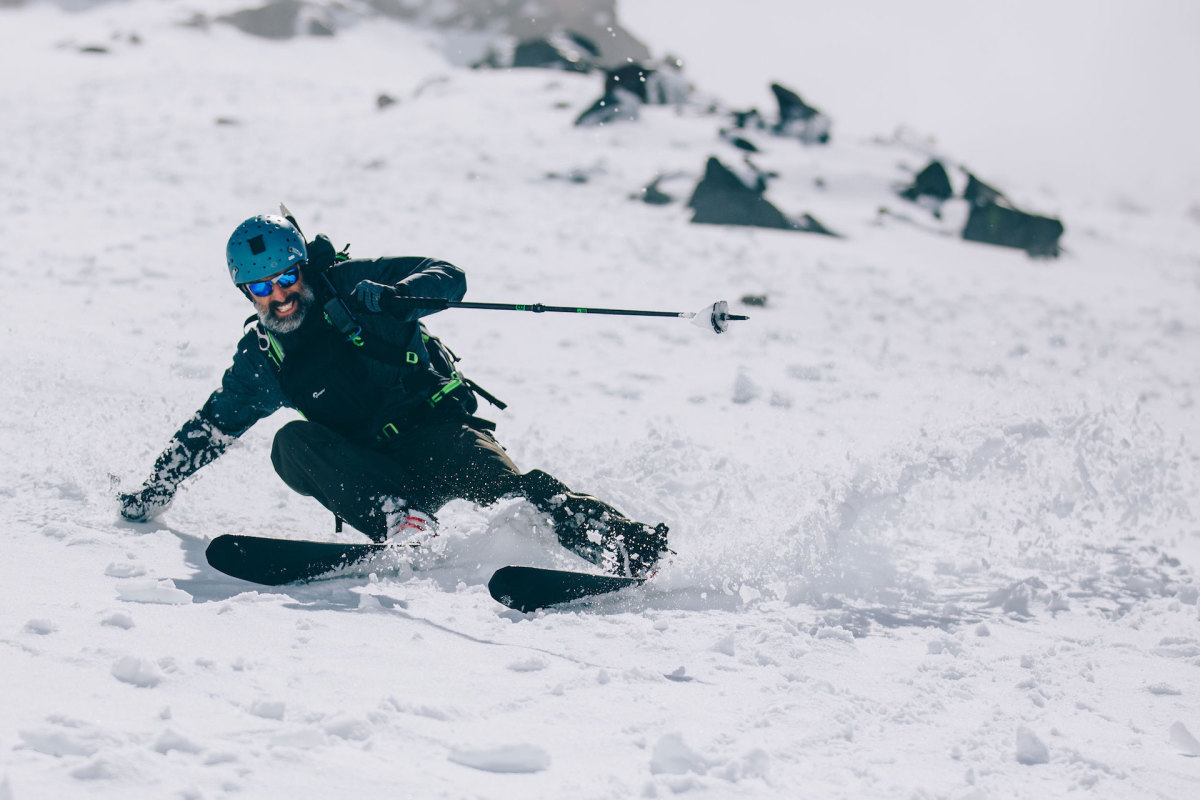
As a reward for the hardest climb of the trip, we found perfect backcountry corduroy for most of the ski down. Even after a 12-hour day on the mountain, we got back on the bikes and pedaled until dinnertime. Lucky to find a great camp spot by the river, we toasted the end of the rain—for now.
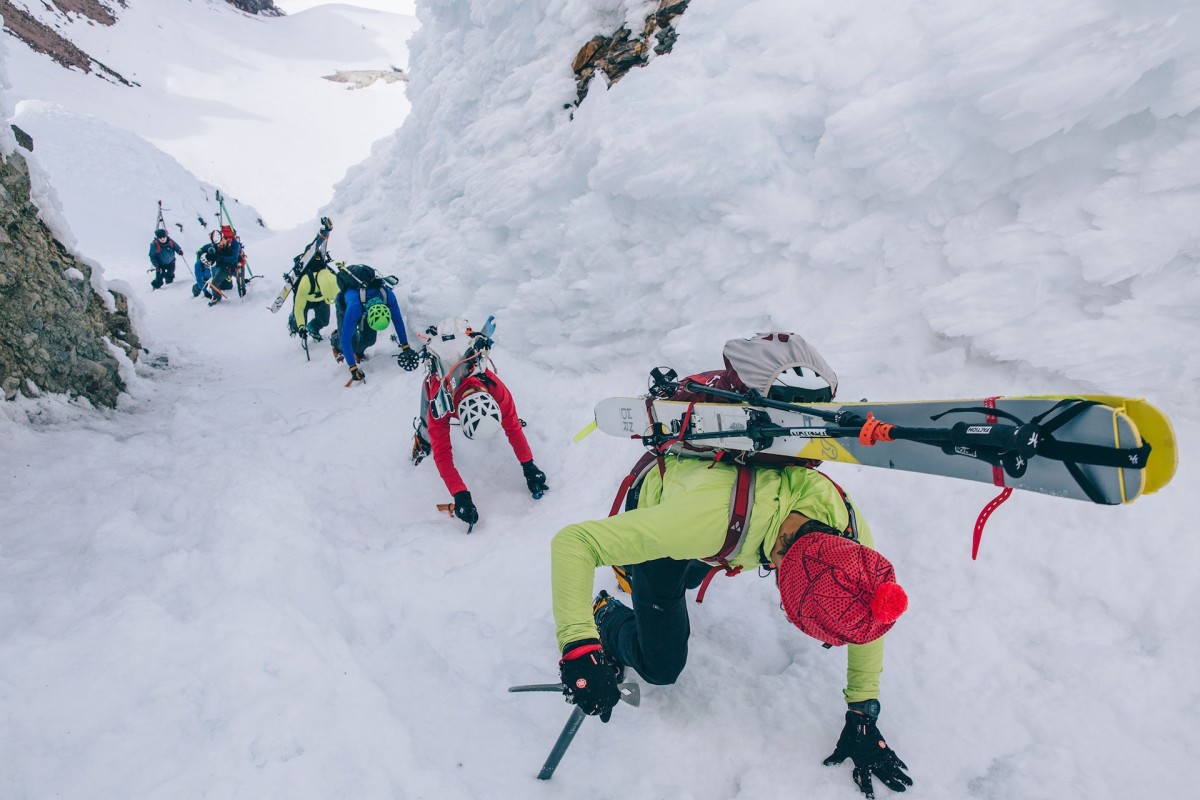
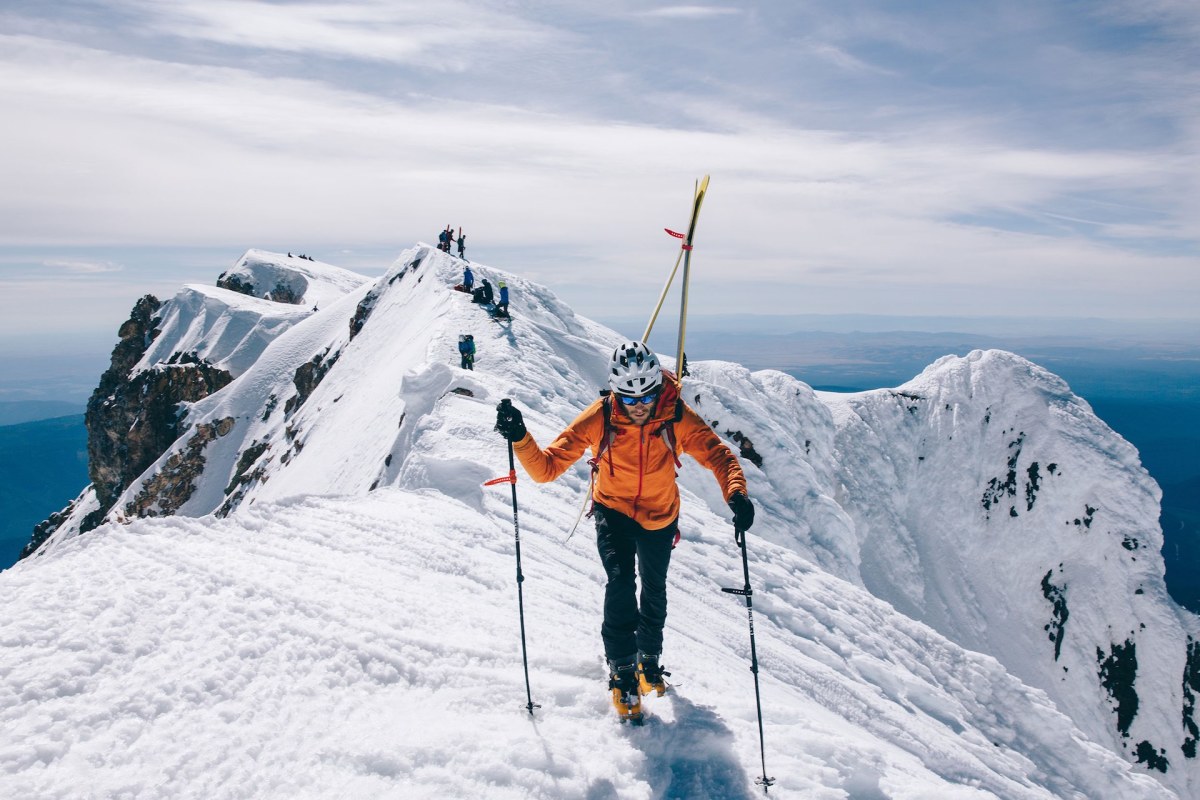
The ride to Mount Hood was a poetic end to the trip. Almost 9,000 feet of climbing on empty roads made for a memorable day of suffering together. We took out the jambox and rode shoulder to shoulder, singing ’90s hits. The next morning we started around dawn, happily skinning from the parking lot. Skiing the Old Chute off the summit ridge, I remember thinking how lucky we were.
The trip wasn’t what I expected, but that’s the purpose of adventure. To be dealt adversity and to handle it as best you can. This lesson applies to much more than bike-to-ski adventures, too. It wasn’t lost on me that I’ll need this patience and perspective as I started to get involved with issues larger than myself.
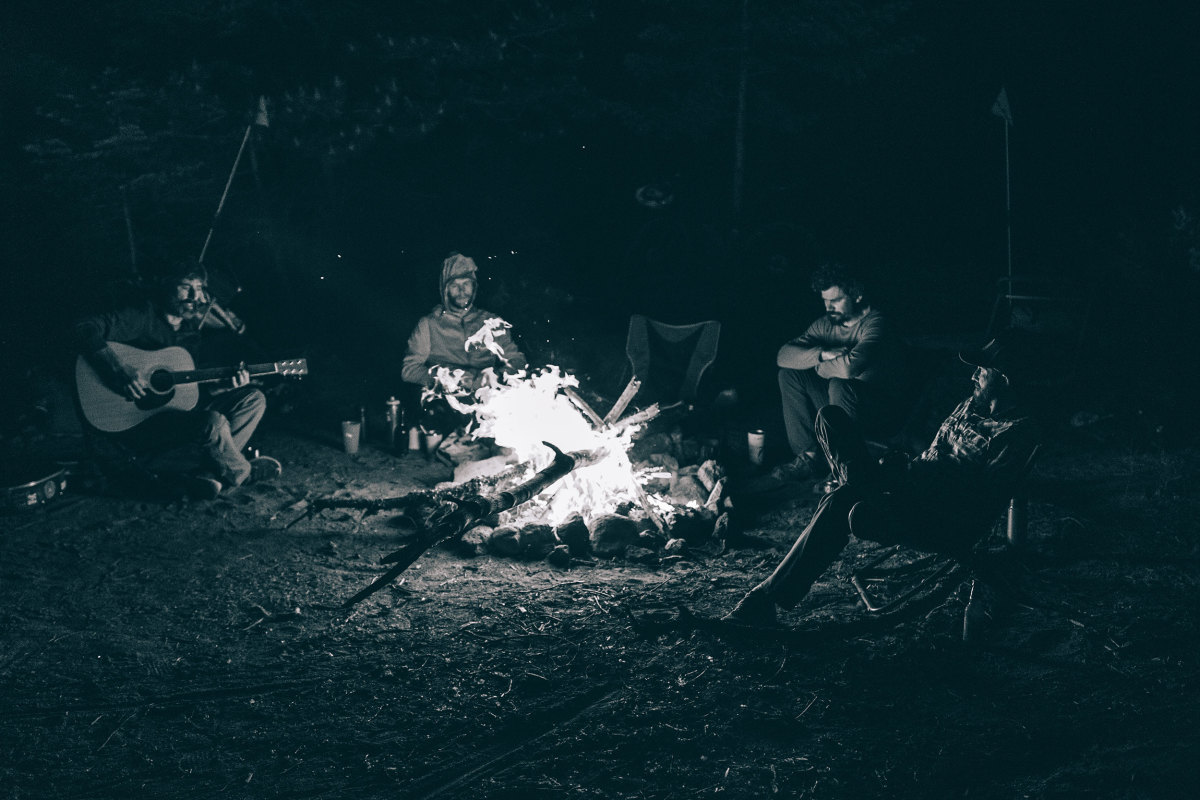
— See more recent dispatches from Cochrane, including a look at life on an Alaskan crab boat, coverage of the Baja 1000, and the tale of an emergency canyon evacuation deep in the Mexican jungle.
from Men's Journal https://ift.tt/32ZtGFJ



0 Comments